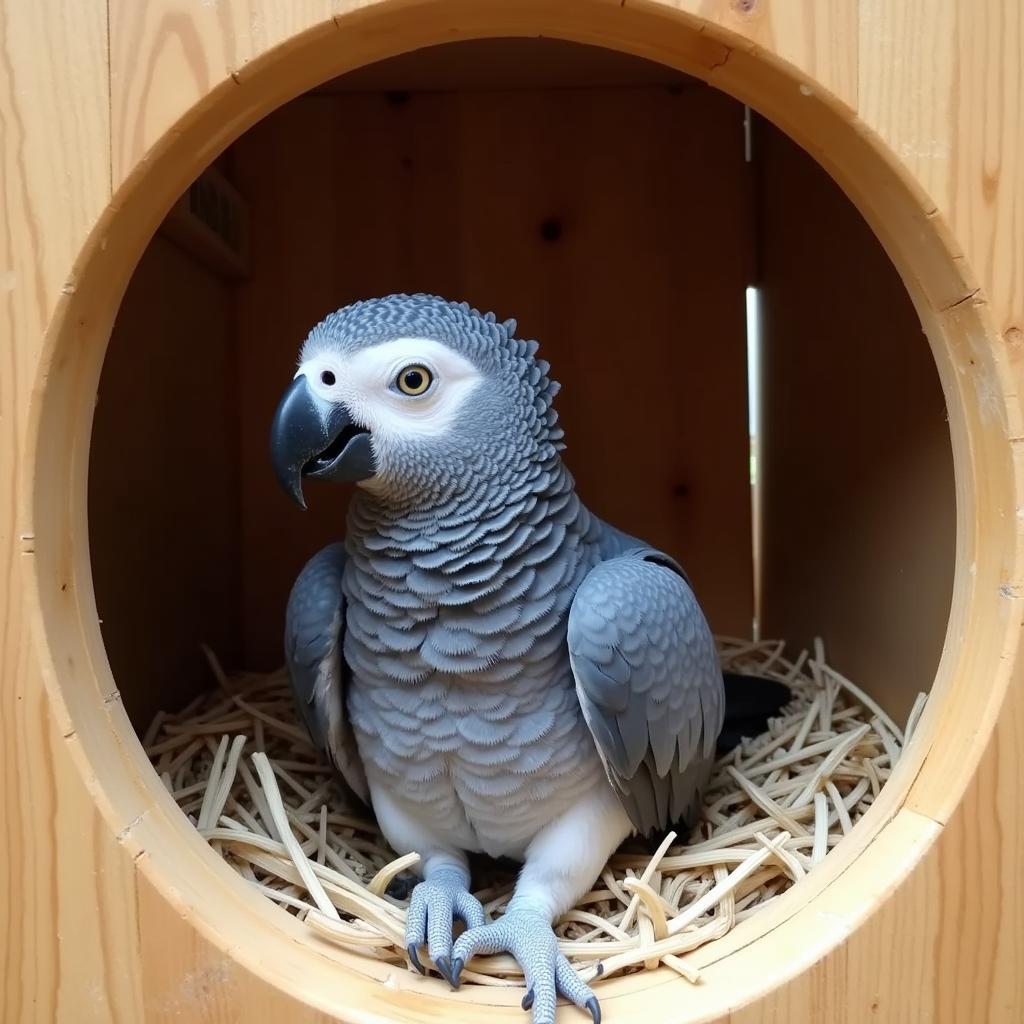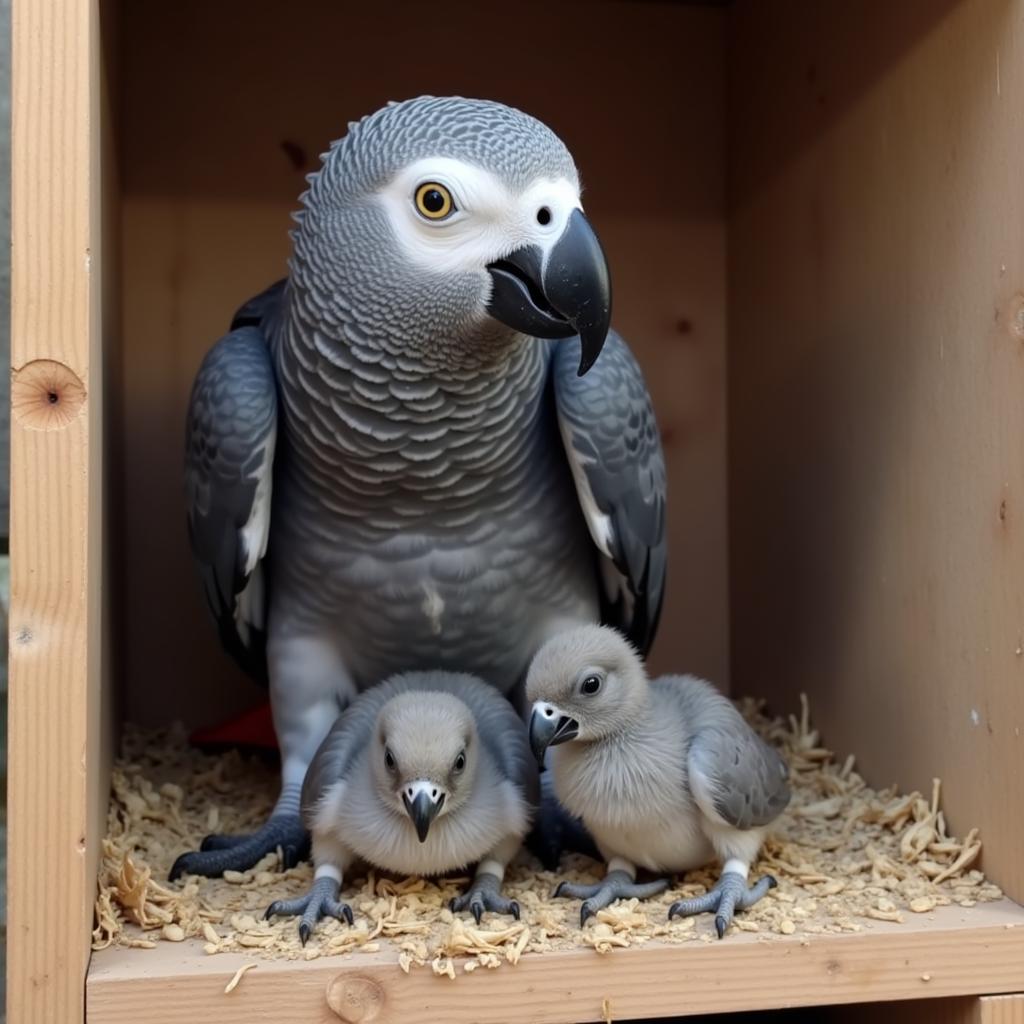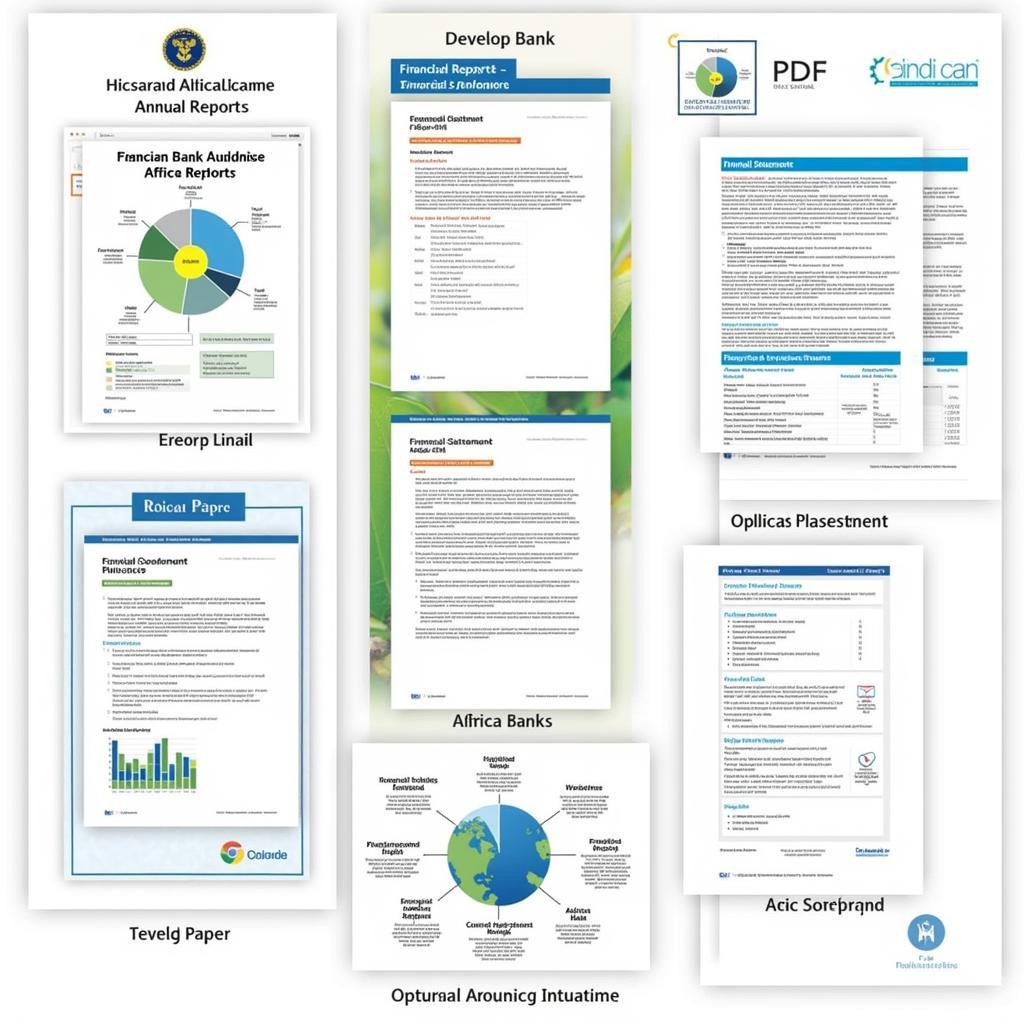African Grey Parrot Egg Laying Season: Timing is Everything
The African grey parrot, a beloved companion bird known for its intelligence and ability to mimic human speech, has specific breeding habits. Understanding the African Grey Parrot Egg Laying Season Time is crucial for anyone caring for these birds, especially breeders or those hoping to breed their parrots.
Factors Influencing African Grey Parrot Breeding Season
Unlike some bird species with predictable breeding cycles, African grey parrots don’t adhere to a strict timeline. Several factors influence when an African grey parrot might lay eggs:
- Geographical Location: While not as pronounced as in some species, parrots in different regions of Africa may exhibit slight variations in breeding seasonality.
- Climate and Rainfall: The onset of rainy seasons, bringing fresh vegetation and abundant food sources, often triggers breeding behavior.
- Food Availability: A plentiful and diverse diet rich in fruits, seeds, and protein is essential for successful breeding.
- Age and Health: Only mature, healthy parrots will breed.
- Pair Bonding: A strong bond between a mated pair is crucial for successful breeding.
Typical African Grey Parrot Egg Laying Season
Generally, African grey parrots in the wild tend to breed during the wetter months of the year. This period usually falls between December and February, and again between June and August. However, captive parrots, especially those in controlled environments, may lay eggs at slightly different times.
Recognizing Breeding Behavior in African Grey Parrots
Observing your parrots’ behavior can offer clues about their breeding readiness. Some common signs include:
- Increased Vocalisation: Parrots may become more vocal, with males often performing elaborate calls to attract a mate.
- Nesting Behavior: Females might start seeking out potential nesting sites within their enclosure, chewing on wood, and becoming more reclusive.
- Aggression: An increase in territorial behavior, especially towards other birds or even their owners, can be a sign of hormonal changes related to breeding.
Preparing for the African Grey Parrot Egg Laying Season
If you suspect your African grey parrots might be entering their breeding season, it’s essential to make a few adjustments:
- Provide a Nesting Box: Offer a spacious and secure nesting box made from safe materials like untreated wood.
- Dietary Needs: Ensure a varied diet rich in calcium, protein, and essential vitamins and minerals.
- Monitor Their Health: Regular vet check-ups are crucial to ensure your parrots are in optimal breeding condition.
 African Grey Parrot in Nesting Box
African Grey Parrot in Nesting Box
African Grey Parrot Egg Laying: What to Expect
Once a female African grey parrot is ready, she will typically lay a clutch of 2 to 5 eggs. Here’s what you need to know:
- Laying Interval: She will lay one egg every other day.
- Incubation Period: Incubation, primarily done by the female, lasts around 30 days.
- Parental Care: Both parents participate in caring for the chicks once they hatch.
Responsible Breeding Practices
Breeding African grey parrots is a significant responsibility. It’s crucial to be aware of the ethical considerations and potential challenges:
- Commitment: Raising parrot chicks is time-consuming and demands dedication.
- Finding Homes: Ensure you have suitable homes lined up for the chicks before breeding.
- Conservation: Be mindful of the impact of breeding on wild populations and consider supporting conservation efforts.
FAQs about African Grey Parrot Egg Laying Season
Q: Can I encourage my African grey parrots to breed outside of their typical season?
While it might be possible to manipulate environmental factors like lighting and diet, it’s generally not recommended to force breeding outside of their natural cycle.
Q: How can I tell if my African grey parrot’s eggs are fertile?
Candling, a process of shining a light through the eggs, can help determine fertility after about a week of incubation.
Q: What should I do if my African grey parrot lays an infertile egg?
It’s best to leave infertile eggs in the nest for the duration of the incubation period to avoid disrupting the female’s laying and brooding behavior.
Q: My African grey parrot laid an egg, but there’s no male. What should I do?
Females can lay eggs without a mate. However, these eggs will be infertile. Consult with an avian veterinarian for advice on managing the situation.
 African Grey Parrot Chicks with Parent
African Grey Parrot Chicks with Parent
Understanding the nuances of the African grey parrot egg laying season is essential for responsible ownership and breeding. By recognizing the signs, providing a supportive environment, and staying informed about best practices, you can contribute to the well-being of these intelligent and captivating creatures.
For more insights into African birdlife and fascinating facts about African homes, explore our articles on the African pipit and African fruit names. Discover the beauty and diversity of African house plans and designs and delve into intriguing African homes facts.
Need assistance or have more questions about African grey parrot care? Contact us at +255768904061, email kaka.mag@gmail.com, or visit us in Mbarali DC Mawindi, Kangaga, Tanzania. Our dedicated customer care team is available 24/7 to assist you.

